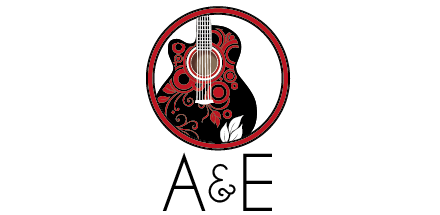West Ashley’s revitalization is popping up in more spots than a new Whole Foods Market or Citadel Mall’s reinvention.
Some of West Ashley’s rebirth is emerging in smaller, more personal bites. Like the investment Matteo Rapallini is making by moving his architecture firm, StudioMa, into a former paint and body shop in the middle of the historic Maryville Neighborhood.
West Ashley resident Rapallini says it makes perfect sense for him and his wife to move their residential and commercial firm into what some see as one of the rougher parts of West Ashley.
“We both came from the streets,” says Rapallini, who immigrated to America from the Ligura region of Italy in his mid-teens.
StudioMa takes over the Magnolia Avenue space left behind by Paul’s Paint & Body, which had a drop-by-and-hang vibe for years. Rapallini intends to keep that ethos going, and plans to hold art and design classes for neighborhood kids who reminded him of a younger version of himself.
“Fathers from the neighborhood have come by with their kids to see what is happening, and I tell them, ‘Come back when we open at night and we can draw,’” says Rapallini, who pulled stints in the Air Force as well as the Army Reserve.
The building, while not complete, has already gone through a major transformation. Gone is the hand-painted sign and exposed cinder blocks from Paul’s time, and in their place are wooden and aluminum cladding that would look at home in a contemporary architecture Dwell magazine.
Rapallini’s eye for detail is evident, even halfway through the build, everywhere you look inside. The solid door fixtures that have that “feel” that makes your hand nod. The wall of asymmetrical windows gathered for pennies on the dollar from the nearby ReStore Habitat for Humanity store a few blocks away.
In what had been the main garage, where cars would be parked as their dents were removed and paint jobs smoothed over, power boxes for future workstations stand at attention like hyper-vigilant meerkats. The room’s vaulted ceiling beams are exposed.
“I know exactly what he was doing here,” Rapallini says of the wall where Paul had scribbled math equations. “He was figuring out the mix ratios on the wall to make mix either paint and clear with the respective correct ratios of either reducers or hardeners to make the paint evaporate and dry at correct temperatures throughout the year.”
Rapallini had been a fabricator and welder in the military, with a passion for cars that followed him from the Old Country. “I’m an Alfa Romeo man,” he says.
Thanks to the G.I. Bill, Rapallini attended Penn State for his undergraduate degree, and then N.C. State for his master’s in architecture, where he also taught class for a while. Once in Charleston, Rapallini bounced around from tony architecture firm to tony architecture firm, knocking out work on big houses at Kiawah and dentist offices.
It wasn’t for him. That kind of work, while lucrative and gorgeous in design magazines, didn’t speak to one of the main goals of architecture: to uplift people.
And that’s how West Ashley and its ongoing revitalization came to be a perfect fit for StudioMa.
“We didn’t ‘choose’ West Ashley; West Ashley chose us,” says Rapallini. “I think of West Ashley as a young soccer player with talent, which if he’s guided like a Lionel Messi, could become a phenomenon.”
The peninsula he says is great, “perfect.” But West Ashley, from his perspective, “has a lot of that same kind of talent and will soon become phenomenal.”
And his point is being made down the block by The Schoolhouse, a former elementary school at the corner of Magnolia and Sycamore avenues that serves as an events space, as well as office space for non-profits and newly minted startups.
The Schoolhouse sits next to the Magnolia Community Garden, and around the corner from the city’s Ackerman Park, with its skate park and soccer fields and Wednesday night farmers markets.
And work on the aforementioned Whole Foods thunders on at the other end of nearby Playground Road.
But here in Pete’s former paint and body shop, Rapallini doesn’t have the comfort of “private equity” investors or climbing stock value. All he’s got is a vision of what West Ashley could be, and he wants a piece of that.













